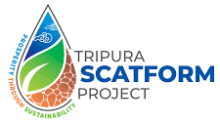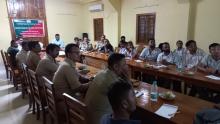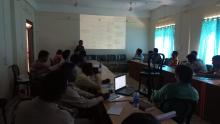
NIPUN Bharat
National Initiative for Proficiency in Reading with Understanding and Numeracy. As per National Education Policy 2020, the highest priority of the education system will be to achieve universal foundational literacy and numeracy in primary school covering the learning needs of children in the age group of 3 to 9 years by 2025. The rest of this Policy will become relevant for our students only if this most basic learning requirement (i.e., reading, writing, and arithmetic at the foundational level) is first achieved. To this end, a National Mission on Foundational Literacy and Numeracy will be set up by the Ministry of Education on priority. Accordingly, all State/UT governments will immediately prepare an implementation plan for attaining universal foundational literacy and numeracy in all primary schools, identifying stage-wise targets and goals to be achieved by 2025, and closely tracking and monitoring progress of the same.
Foundational Language and literacy
The pre-existing knowledge of language helps in building literacy skills in languages. The key components in Foundational Language and Literacy are:
- Oral Language Development: The experiences in oral language are important for developing skills of reading and writing.
- Phonological Awareness: This domain includes the competencies of word awareness, rhyme awareness, and awareness of sounds within words which should emerge from their meaningful engagement with language.
- Decoding: This domain includes competencies of print awareness, akshara knowledge and decoding, and word recognition
- Vocabulary: This domain includes the competencies of oral vocabulary, reading/writing vocabulary, and morphological analysis of words.
- Reading Comprehension: This domain covers the competencies of understanding texts and retrieving information from them, as well as interpreting texts.
- Reading Fluency: Refers to the ability to read a text with accuracy, speed (automaticity), expression (prosody), and comprehension that allows children to make meaning from the text.
- Concept about Print: Children need exposure to different types of print rich environment to develop the skill of comprehension.
- Writing: This domain includes the competencies of writing aksharas and words as well as writing for expression.
- Culture of Reading/Inclination towards Reading: Involves the motivation to engage with a wide variety of books and other reading materials.
Foundational Numeracy
Foundational Numeracy means the ability to reason and to apply simple numerical concepts in daily life problem solving. The major aspects and components of early mathematics are:
- Pre-Number Concepts: Count and understand the numeration system
- Numbers and operations on numbers: Learn conventions needed for mastery of Mathematical techniques such as the use of a base ten system to represent numbers
- Measurement: Understand and use standard algorithms to perform operations of addition, subtraction, multiplication and division on numbers up to three digits
- Shapes and Spatial Understanding: Perform simple computations in her/his own way up to three-digit numbers and apply these to their day to life activities in different contexts
- Patterns: Learn vocabulary of relational words to extend his/her understanding of space and spatial objects








 Share this page
Share this page









